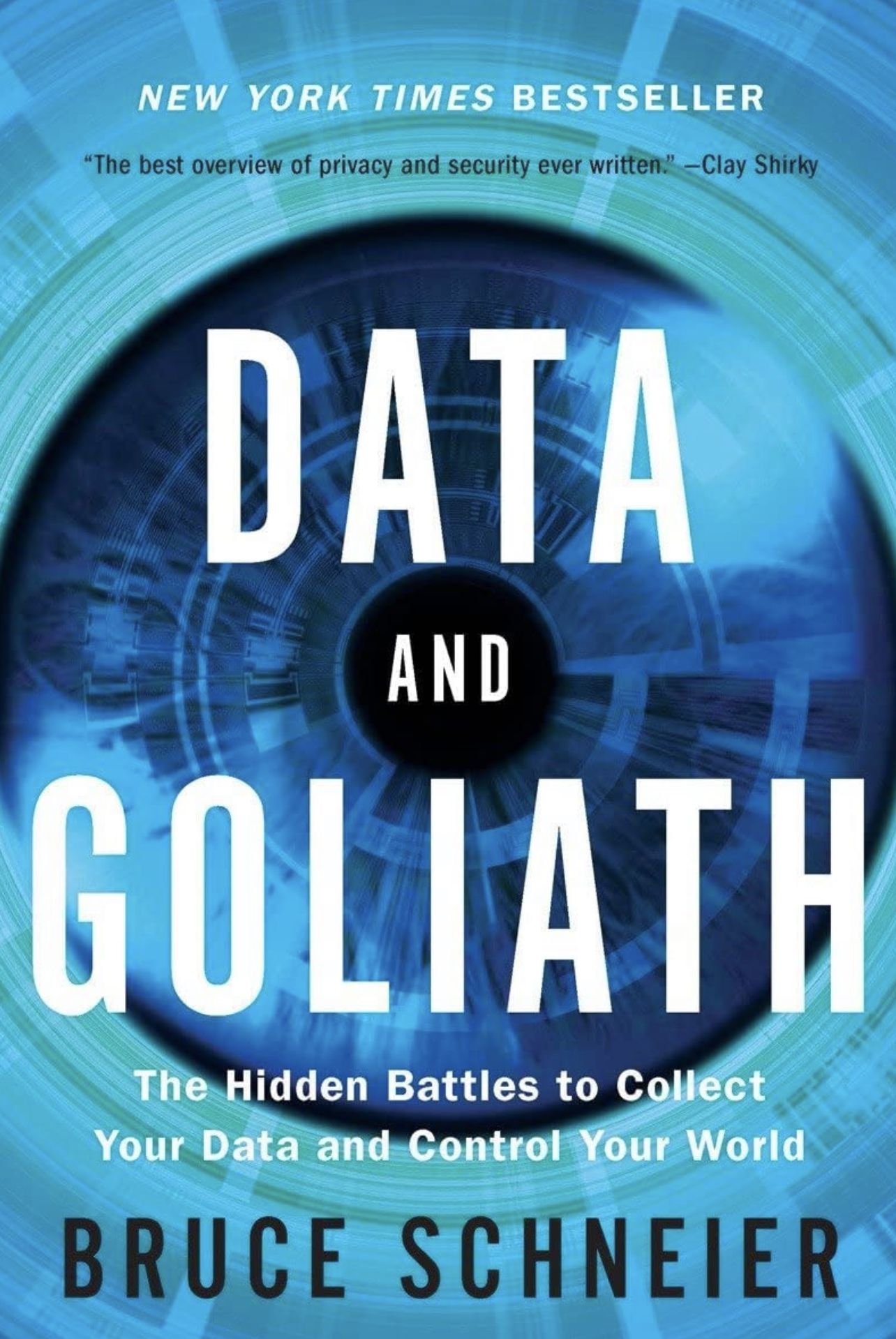← Data and Goliath The Hidden Battles to Collect Your Data and Control Your World
Data and Goliath The Hidden Battles to Collect Your Data and Control Your World Chapter 8. Commercial Fairness and Equality

Author: Bruce Schneier Publisher: New York, NY: W. W. Norton & Company. Publish Date: 2015-3 Review Date: Status:📚
Annotations
-
Highlight(pink) - Location 1817 Any time we’re monitored and profiled, there’s the potential for getting it wrong. You are already familiar with this; just think of all the irrelevant advertisements you’ve been shown on the Internet, on the basis of some algorithm misinterpreting your interests.
-
Highlight(pink) - Location 1819 For some people, that’s okay; for others, there’s low-level psychological harm from being categorized, whether correctly or incorrectly. The opportunity for harm rises as the judging becomes more important: our credit ratings depend on algorithms; how we’re treated at airport security depends partly on corporate-collected data.
-
Highlight - Location 1833 Manipulation doesn’t have to involve overt advertising. It can be product placement ensuring you see pictures that have a certain brand of car in the background. Or just an increase in how often you see that car. This is, essentially, the business model of search engines. In their early days, there was talk about how an advertiser could pay for better placement in search results. After public outcry and subsequent guidance from the FTC, search engines visually differentiated between “natural” results by algorithm and paid ones. So now you get paid search results in Google framed in yellow, and paid search results in Bing framed in pale blue. This worked for a while, but recently the trend has shifted back. Google is now accepting money to insert particular URLs into search results, and not just in the separate advertising areas. We don’t know how extensive this is, but the FTC is again taking an interest.
-
Highlight - Location 1841 But people can pay to increase the likelihood that their friends or fans will see their posts. Payments for placement represent a significant portion of Facebook’s income. Similarly, a lot of those links to additional articles at the bottom of news pages are paid placements.
-
Highlight(pink) - Location 1850 A truly sinister social networking platform could manipulate public opinion even more effectively. By amplifying the voices of people it agrees with, and dampening those of people it disagrees with, it could profoundly distort public discourse.
-
Highlight(pink) - Location 1852 China does this with its 50 Cent Party: people hired by the government to post comments on social networking sites supporting, and to challenge comments opposing, party positions. Samsung has done much the same thing.
-
Highlight(pink) - Location 1854 Many companies manipulate what you see according to your user profile: Google search, Yahoo News, even online newspapers like the New York Times.
-
Highlight(pink) - Location 1855 The first listing in a Google search result gets a third of the clicks, and if you’re not on the first page, you might as well not exist.
-
Highlight(pink) - Location 1856 The result is that the Internet you see is increasingly tailored to what your profile indicates your interests are. This leads to a phenomenon that political activist Eli Pariser has called the “filter bubble”: an Internet optimized to your preferences, where you never have to encounter an opinion you don’t agree with. You might think that’s not too bad, but on a large scale it’s harmful.
-
Highlight(pink) - Location 1871 Unique harms can arise from the use of surveillance data in politics. Election politics is very much a type of marketing, and politicians are starting to use personalized marketing’s capability to discriminate as a way to track voting patterns and better “sell” a candidate or policy position.
-
Highlight(pink) - Location 1873 Candidates and advocacy groups can create ads and fund-raising appeals targeted to particular categories: people who earn more than $100,000 a year, gun owners, people who have read news articles on one side of a particular issue, unemployed veterans…
-
Highlight(pink) - Location 1875 anything you can think of. They can target outraged ads to one group of people, and thoughtful policy-based ads to another. They can also fine-tune their get-out-the-vote campaigns on Election Day, and more efficiently gerrymander districts between elections.